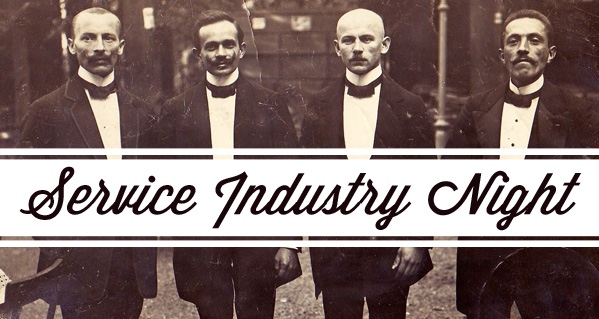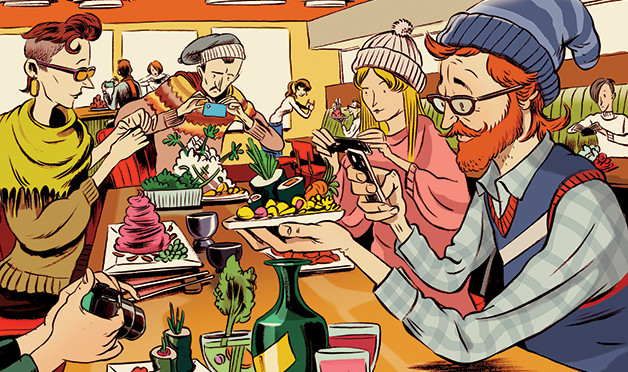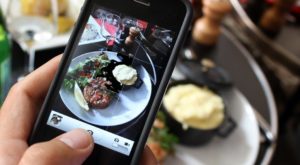There’s a soldierly code of honor in restaurants. We take care of each other. The restaurant business is built on manufacturing pleasure for strangers, so we cherish the opportunity to extend hospitality to our industry brethren. Bearing ourselves naked for nameless faces every night can be exhausting. So when our friends come visit us at our restaurant jobs, we feel like human beings again.
Even if you work in the business and we don’t know you personally, it’s our responsibility to make sure you leave drunk, full and happy. We know you’d do the same for us. A restaurant’s reputation among insiders is vital to its success and pampering industry friends pays it forward. You have to be at the top of your game. When restaurant people are impressed, they become evangelists and will spread your gospel to a captive audience that can singlehandedly butter your bread. Word of an ungracious experience travels fast.
In the service industry, we take a lot of pride in what we do and love to show it off. Who better to share all of this with than people who understand what it takes to produce beautiful food and serve it with style? Restaurant schedules are often so rigorous that the only chance you have of seeing a friend who works in the business is to visit them at work. So, we do.
These experiences all begin the same way: “I just came by to see if you were working.”
Even the most innocent visit will end up in your consuming three to four more times the amount of booze and food than you had intended. Your waiter friend will start by asking you: “Is there anything you don’t eat?” The question tells you all you need to know about our mentality. If you don’t tell us what to eliminate, we’re considering sending you everything. Once you get on the train, there’s no way of stopping it.
The meal starts and complimentary things begin materializing unexpectedly. The kitchen sends an extra appetizer—the one you discussed at length with your friend but didn’t order. Your steak comes and they bring a side of potato gratin. You finish your glass of red, turn away for a split second, and it’s automatically refilled like magic. You’re so full at this point that dessert is out of the question, so you decline. But it comes anyway. And, eventually, so will the check. Items you ordered will be suspiciously missing. You leave a huge tip to say thanks, but you know they didn’t do it for the extra gratuity. They did it because they know how hard you work and how much you deserve to be on the receiving end for once.
You leave feeling fat and tipsy; you wake up the next day lazy and hungover. It’s a tragic and beautiful cycle of enabling codependency. Sure, there are consequences. But if we cared about consequences, would we be working in restaurants in the first place? Hell, no.



